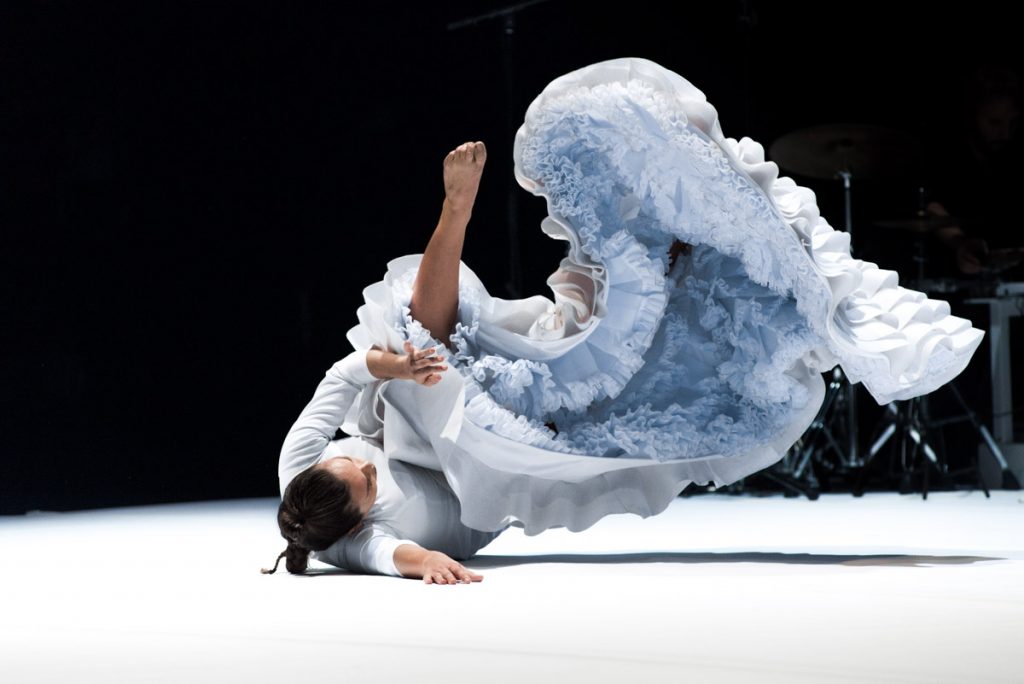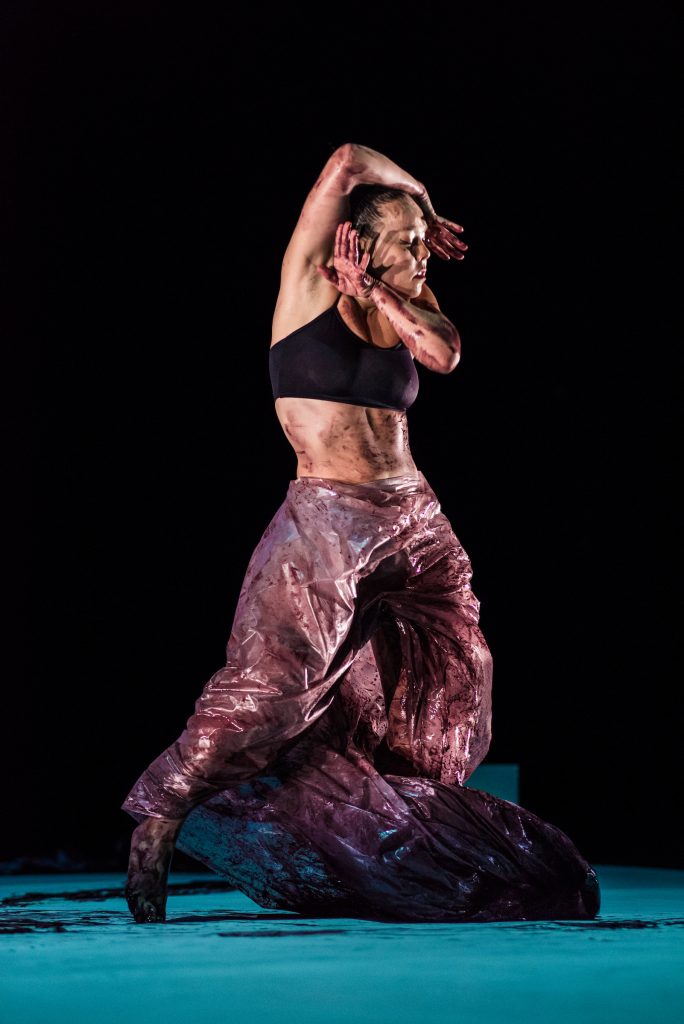
Credit: Simone Fratini
SFU Goldcorp Centre for the Arts
September 27-30, 2023. Sold out.
Posted September 29, 2023
Twelve hours later I am still exhilarated, wrung out and simply awestruck. Flamenco dancer Rocío Molina (Compañía Rocío Molina, Spain) will do that to you. In Spain where she was born in 1984, she is known by many flamenco aficionados as “a goddess”. She pushes the boundaries of the form hard, hard, hard but with the technical virtuosity of the traditional style. Iconoclastic, Molina is explosive, whimsical, dynamic, sad, enraged, flirtatious, fearless – all packaged in a small, extremely strong body that, at times, insinuates itself across the bare stage but at other times, rages across it – defiance made dance. And yet, and yet, her playfulness slips through; I found myself smiling in the dark through the mid portion of the 90 minute performance.
After a heavily percussive electronic musical opening performed by musicians Oscar Lago, Kiko Peña, José Manuel Ramos “Oruco” and Pablo Martin Jones, in a stage flooded in blood-red light, the slow burn begins.
Molina, the solo dancer and the choreographer of Caída del Cielo, first appears in complete and utter silence in a white, bridal gown-like dress with a long, heavily flounced train. Is she moving? Is she beginning to lean ever so slightly to her left? Is she? But then her expressive hands begin to move like birds and, yes, she is moving. Rapt, we are already enthralled, reduced to silence. And then she begins to dance, barefoot.
The mid portion of the performance (with Molina now in a white, skin-tight body suit, metallic gold vest and her black flamenco shoes), is dynamic, even frantic. But she toys with the musicians, she smiles, she chuckles, they smile in response.
Her footwork is astonishing, but her moves are far from classical. She dons a codpiece to which, eventually, a bag of chips is attached. She assaults the stage. She’s on the attack. She challenges the male musicians. Molina has them – and us – eating out of her hand, metaphorically speaking. And finally, she is a wild, free thing adorned with flowers and grapes, racing up the stairs through the audience.
I am not a dance critic but the reason I wanted to see this performance was that it promised to have a storytelling component, a narrative arc. I generally don’t ‘get’ the narrative arc in dance and so I choose not to see a lot of dance. I can’t seem to get beyond “What is it about”? But I’m very open to the fusion of dance, music and storytelling. Whether or not the story I told myself about Fallen from Heaven is what Molina intended, I don’t know. But I reacted really profoundly, at a gut level, to what I perceived to be going on and it was all about gender, the constraints of tradition and breaking free.

Credit: Simone Fratini
I have never before seen on stage such an expression of freedom, celebration of mind and body, the joy of being alive and of coming through pain and grief to find that place. Extraordinary. Brought to Vancouver as part of The Vancouver International Flamenco Festival by Rosario Ancer, herself a celebrated dance/choreographer and Artistic and Executive Director of Vancouver’s Flamenco Rosario, the evening was jointly presented by Flamenco Rosario, DanceHouse and SFU Woodward’s Cultural Programs.
In awe of Rocío Molina and overwhelmed by the amount of international acclaim, I came across this: “At 28, after her outstandingly successful performance of Oro Viejo (Old Gold), Mikhail Baryshnikov kneeled before her at the door of her dressing room at New York City Center.” What greater accolade can there possibly be?
At 39, Molina is still keeping audiences enraptured; she is, as Rosario Ancer says, “a force of nature.”

